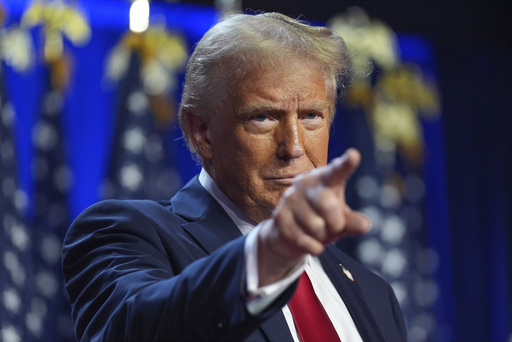
TEHRAN, Iran — As the world contemplates the implications of Donald Trump potentially returning to the presidency, many Iranians are expressing mixed feelings about what his leadership might mean for U.S.-Iran relations. While some observers fear a potential escalation into war between Tehran and Washington amid existing conflicts in the region, others cautiously hope for diplomatic engagement reminiscent of Trump’s previous outreach to North Korea. Most agree on one point: changes are likely coming in the complicated relationship between the two nations.
Political analyst Ahmad Zeidabadi warns that Trump is expected to adopt an even harsher stance against Iran, indicating that the Iranian government will likely respond with its own refusals, potentially escalating tensions. Supreme Leader Ayatollah Ali Khamenei, who holds ultimate authority in Iran, has consistently voiced his disdain for Trump. Nevertheless, the newly elected reformist president of Iran appears open to negotiations as the country grapples with severe economic difficulties exacerbated by international sanctions. The Iranian rial has been on a downward trajectory for years, recently hitting a record low against the U.S. dollar.
Relations between the U.S. and Iran have been notably strained since the Islamic Revolution in 1979, which included the storming of the U.S. Embassy and a hostage crisis that lasted over 400 days. During Trump’s first term, tensions escalated significantly, marked by his withdrawal from the nuclear agreement and the implementation of stringent sanctions that crippled Iran’s economy. His decision to order the assassination of a high-ranking Iranian general further exacerbated the fraught dynamics between both countries.
Following Trump’s reelection announcement, Iranian media outlets reflected their discontent. One publication featured a caricature of Trump in a prison jumpsuit beneath a headline condemning his return. The hard-line media sentiment echoed a feeling of darkness returning to U.S.-Iran relations.
On the streets of Tehran, however, responses are more varied. While some residents express fear of a repeat of the turmoil experienced during Trump’s previous presidency, others, like 40-year-old Fatemeh Kaveh, expressed admiration for Trump, viewing him as a powerful figure and role model. In contrast, Khamenei’s stance remains firm; he has previously stated that he sees no value in communicating with Trump, reinforcing his position that the U.S. withdrawal from the nuclear deal was a significant affront to Iran.
Since the targeted killing of Major General Qassem Soleimani by a U.S. drone strike in Baghdad in January 2020, memories of the event linger within the Iranian public. Activists like 39-year-old Reza Solatani claim that now is an opportune time for Iran to seek retribution against “the murderer of our hero.” As the country grapples with a series of protests and civil unrest, particularly surrounding women’s rights and issues of personal freedom, confusion prevails regarding the direction the Iranian government will take regarding diplomatic overtures toward the West amid severe economic constraints.
Some citizens stress that Trump’s presidency could lead to changes in the spending focus in the region. Zohreh Naghavi, 36, a local clothing store worker, believes that his leadership may signal a step towards routing funds back to domestic issues rather than military engagements abroad.
Iran’s newly elected president, Masoud Pezeshkian, who is approaching the end of his initial 100 days in office, campaigned on increasing diplomatic ties with Western nations, focusing on alleviating sanctions related to Iran’s nuclear program. In a recent statement, Pezeshkian emphasized the importance of maintaining open lines of engagement regardless of the outcome of the U.S. electoral process, hinting at the possibility of future discussions.
While the reality of potential talks with Trump remains uncertain, there are speculations that he could pursue similar dialogues as he did with North Korean leader Kim Jong Un during his first term. Zeidabadi noted the possibility of Trump formally proposing a meeting with Pezeshkian. However, internal opposition from hard-line factions in Iran could complicate such negotiations.
Despite the tensions, some Iranians express a sense of urgency in addressing their economic hardships and believe there may be no option but to engage with Trump, given the dire state of the economy, soaring dollar exchange rates, and a lack of accessible healthcare. A 32-year-old nurse, Sina Khaledian, emphasized that the current economic conditions make it critical for Iran to consider peace with the U.S., suggesting that the country’s capacity to endure further turmoil may have reached its limit.
